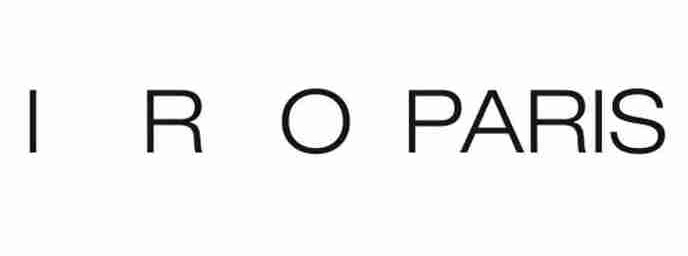On March 22, 2022, in an appeal against the non-use cancellation decision by the Japan Patent Office (JPO), the Japan IP High Court affirmed the JPO’s decision and ruled it is not construed that a disputed mark “I R O PARIS” has been used on its designated goods with a limitation of the origin ‘All made in France’ because the term is not equivalent to ‘designed, or quality-controlled in France’.
Disputed mark “I R O PARIS”
A French fashion house, IRO has registered a wordmark “I R O PARIS” on various goods e.g., jewelry, watches, leather, bags, umbrella, wallets, clothing, shoes, sports shoes, headgear in classes 14, 18, and 25 with a limitation of the origin ‘all made in France’ in 2013 (TM Reg No. 5623868).

Non-Use Cancellation
Article 50 of the Japan Trademark Law provides if a trademark registered in Japan has never been used in commerce in Japan for three consecutive years or longer after registration, the trademark is vulnerable to cancellation provided that third parties file a petition for cancellation of the trademark registration.
iROO International Co., Ltd., a Taiwanese company, filed a petition for non-use cancellation against the disputed mark on every goods of three classes on October 4, 2019.
In the cancellation action, the registrant produced evidence (order form, invoice, magazines) to demonstrate the actual use of the mark “IRO” and “www.iroparis.com” on skirts, belts, and dresses in Japan. The JPO admitted these marks are equivalent to the registered mark “I R O PARIS”. However, the JPO found the goods bearing the mark are not “made in France”, but “made in China”. If so, the disputed mark has not been precisely used on designated goods. Because of it, the Cancellation Board decided to cancel the disputed mark in whole on March 24, 2021.
IRO filed an appeal against the JPO decision on July 29, 2021, and argued the mark “IRO” has been used on goods designed by employees working at the head office in Paris (France). The head office has exclusive authority to control the quality of every item, namely, selecting suitable materials, producing samples made of materials available in Paris, securing the quality of goods made by suppliers, and storing finished goods in a warehouse in Paris before delivery. In view of actual commitment to quality control of final goods made by suppliers and common industry practice in the apparel, the goods shall be construed ‘made in France’ even if it was manufactured by an overseas supplier.
IP High Court decision
The court found the JPO did not err in fact-findings. In fact, the goods bearing the mark “IRO” were manufactured by suppliers having a place of business out of France. On the plaintiff’s website “IRO FALL WINTER 21 COLLECTION”, it mentions the product was made in China.
The disputed mark designates ‘clothing made in France’. It shall be construed the clothing was made in the territory of France. If so, the clothing made out of France would never be deemed identical to the designated goods.
The court has no reason to believe “designed, quality-controlled in France” is equivalent to ‘made in France’ in the literal interpretation of Article 50 of the Japan Trademark Law.
Based on the foregoing, the IP High Court dismissed the appeal and affirmed the cancellation decision.
[Judicial case no. Reiwa 3(Gyo-ke)10087]
This case teaches how important for brand owners to keep designated goods consistent with the actual business. It often happens that the goods bearing a mark containing GI are made in other countries or regions as a matter of fact. Such inconsistency may result in non-use cancellation if the designated goods limit the origin.
As an experienced trademark practitioner, I never fail to confirm the relation between goods and GI when a mark contains GI. In case a brand owner does not manufacture in the area, it is advisable to limit goods by placing more adequate terms, such as ‘designed by (area), derived from (area), using material from (area).’ Otherwise, you may lose your trademark registration in Japan as a result of non-use cancellation.
